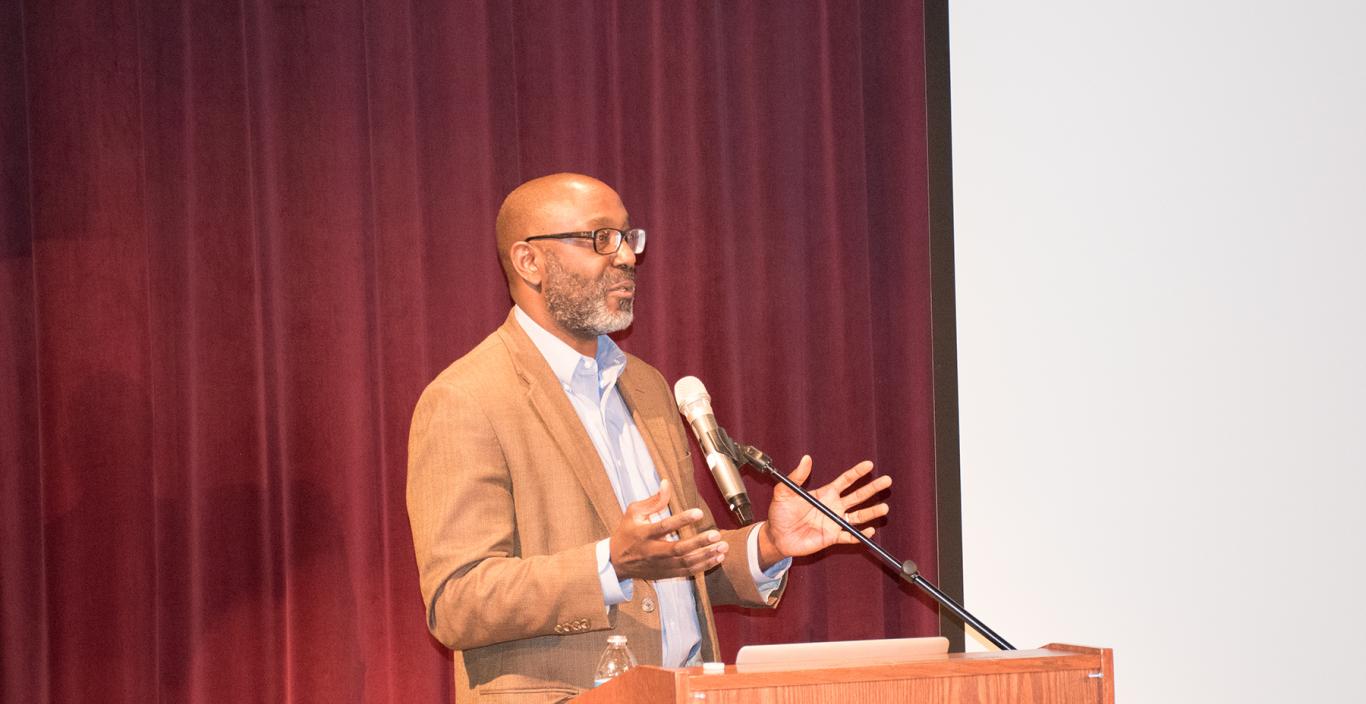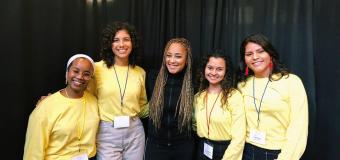In his research, Dr. Trent Masiki is exploring identities of African descendants beyond the catchall term “African American.”
Masiki, a visiting assistant professor at Dickinson College, recently spoke at Lesley about his book project, tentatively titled “The Afroethnic Renewal: African American influences in US Afro-Latino Memoirs, 1961-2013,” which dissects race and identity in the coming-of-age memoirs of seven Afro-Latino authors.
“The diversity within the black diaspora is something that our students and many colleagues on campus often talk about,” said Lilu Barbosa, Lesley’s director of Multicultural Affairs & Student Inclusion and Chief Diversity Officer. “Terms like 'African American' do not necessarily speak to the ethnicities, experiences and history of all black people, and so it is important for us to be thinking about the cultural and ethnic diversity within the black experience when we talk about race.”
Masiki spent much of his lecture discussing political and community activist Evelio Grillo. An Afro-Cuban American from Florida, Grillo’s memoir “Black Cuban, Black American” focuses on his first 26 years, where he seems to pull away from his Cuban identity and identify more as an African American.
“By the time you’re 12-13, you’ve come to understand your racial identity, where you fit in the social order,” Masiki said.
For Grillo, who was born in 1919, integrating into African American society was the practical way to achieve his “Americanness.” While he didn’t forget his Latino heritage, the pan-ethnic African American identity served his purposes as one who wanted to achieve the American dream, which he did as a member of President Jimmy Carter’s administration and as a Democratic political strategist.
“In his mind he has to become a certain class of African American to achieve the upward social mobility that he wants for his family,” he said.
Grillo and his memoir became a subject of study around 2010 when academics began to write about Afro-Latino culture in earnest, more than 60 years after the arrival of thousands of Caribbean and Latin American immigrants of African descent, following new immigration laws in 1965.
“Now that these people have been here for one, two, three generations, they want to see themselves reflected in scholarly research,” Masiki explained.
Many black individuals are no longer satisfied with the broad term African American, which some believe “flattens identity.” It is a topic of discussion among many members of the Lesley community.


